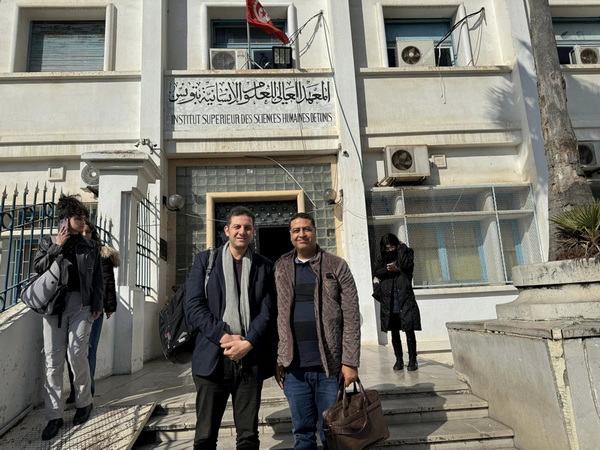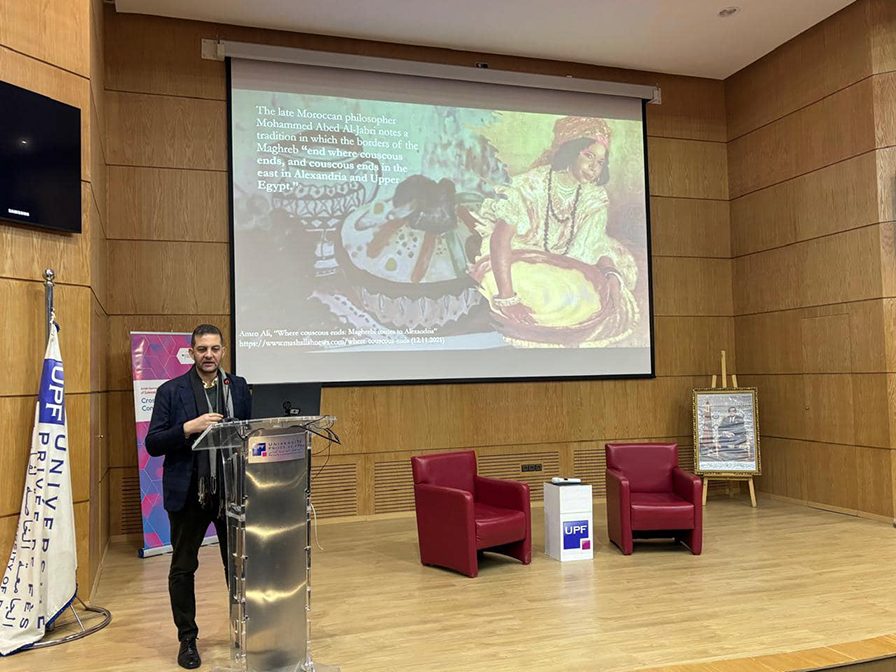
My presentation “Before Borders: Pre-colonial routes and worldviews in the Southern Mediterranean” for the conference/workshop on perceptions of the League of Arab States.
Date: 17 December 2024
Organizer: AGYA / L’Université Privée de Fès
City: Fez
“Our inheritance was left to us by no testament” – René Char
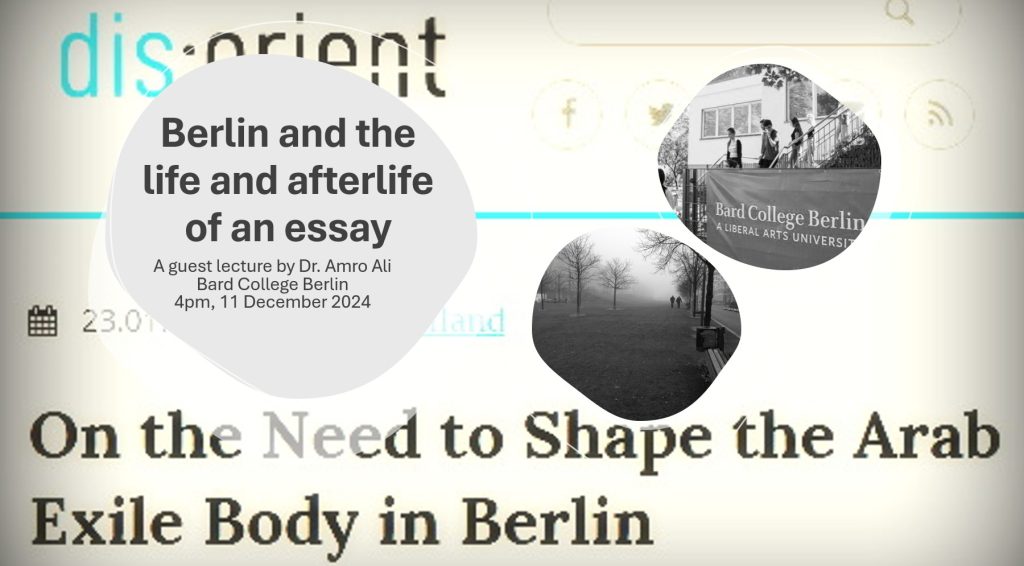
I will be giving a lecture at Bard College Berlin regarding the impact of my 2019 essay, On the need to shape the Arab Exile Body in Berlin, and how it has been received and mediated over the years with different audiences in Germany and across Europe, and how it is being re-read in light of the rise of German illiberalism and xenophobia.
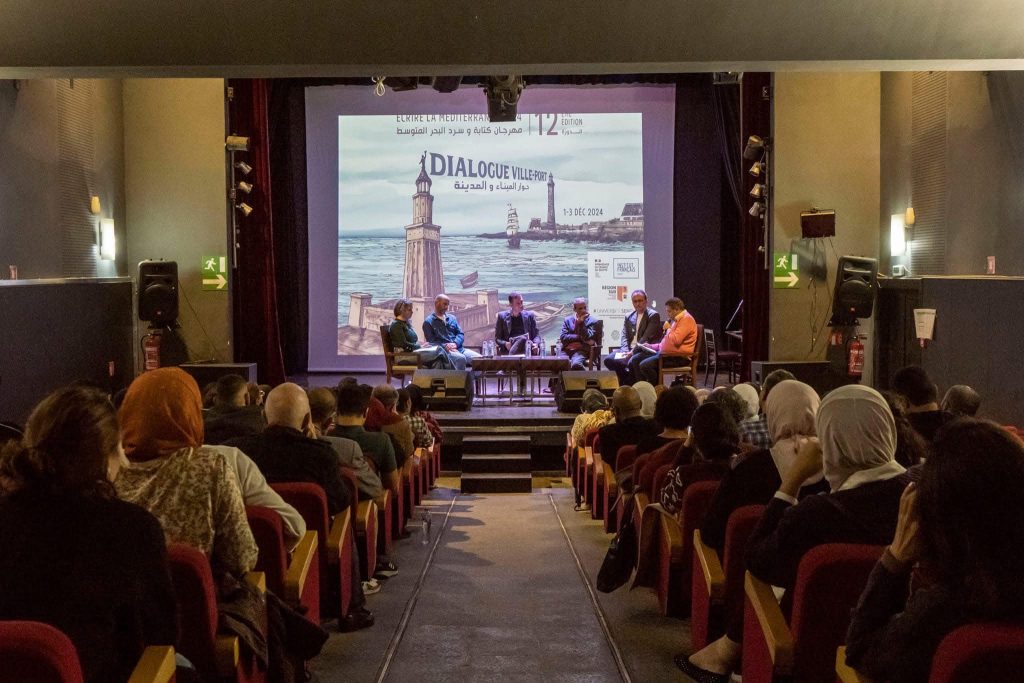
It was an honour to moderate the Port-City dialogues event between the scholars and writers of Alexandria and Marseilles, with Alaa Khaled, Mohamed Adel Dessouki, Anne Millet, and Philippe Pujol. We explored the role of port cities after empire, and how ports shape the identities of these two magnificent cities of the Mediterranean.
Date: 3rd December 2024
Organizer: French Institute Alexandria
City: Alexandria
Event link: https://www.facebook.com/events/2012594592549423
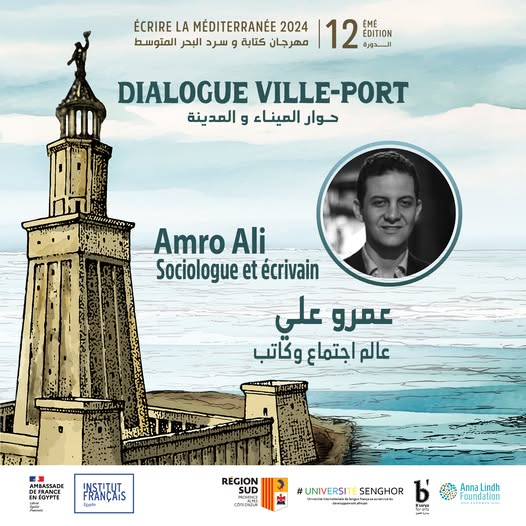
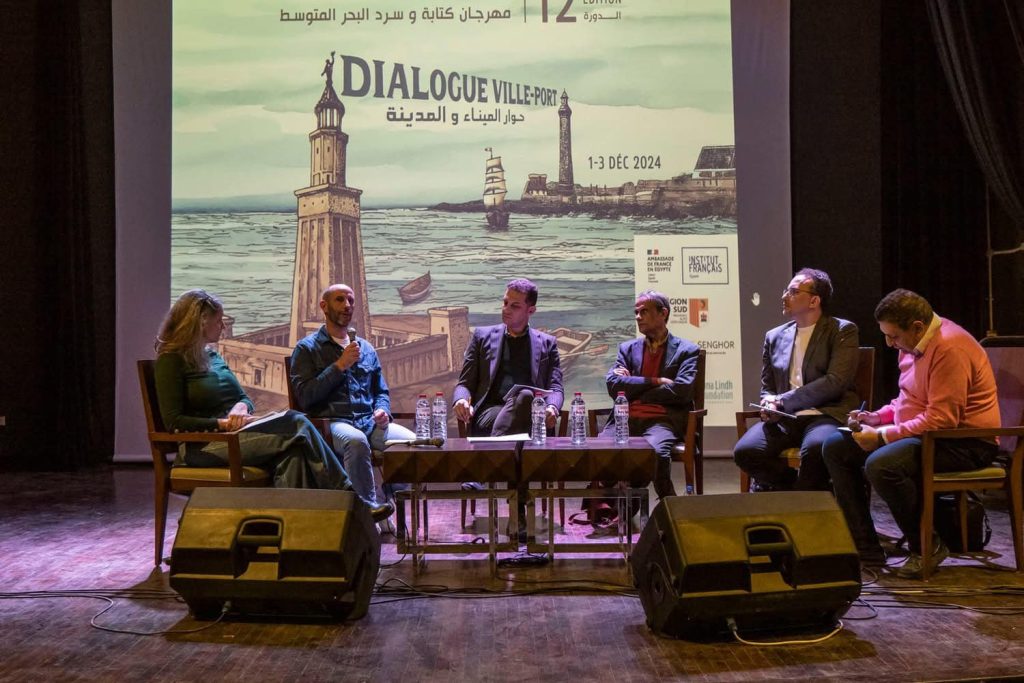
I was delighted to present a lecture to dignitaries on the history of cosmopolitanism through the case study of the Egyptian Nile island of Elephantine during a special exhibition on Museum Island, presented in the James-Simon-Galerie, the Neues Museum Berlin.
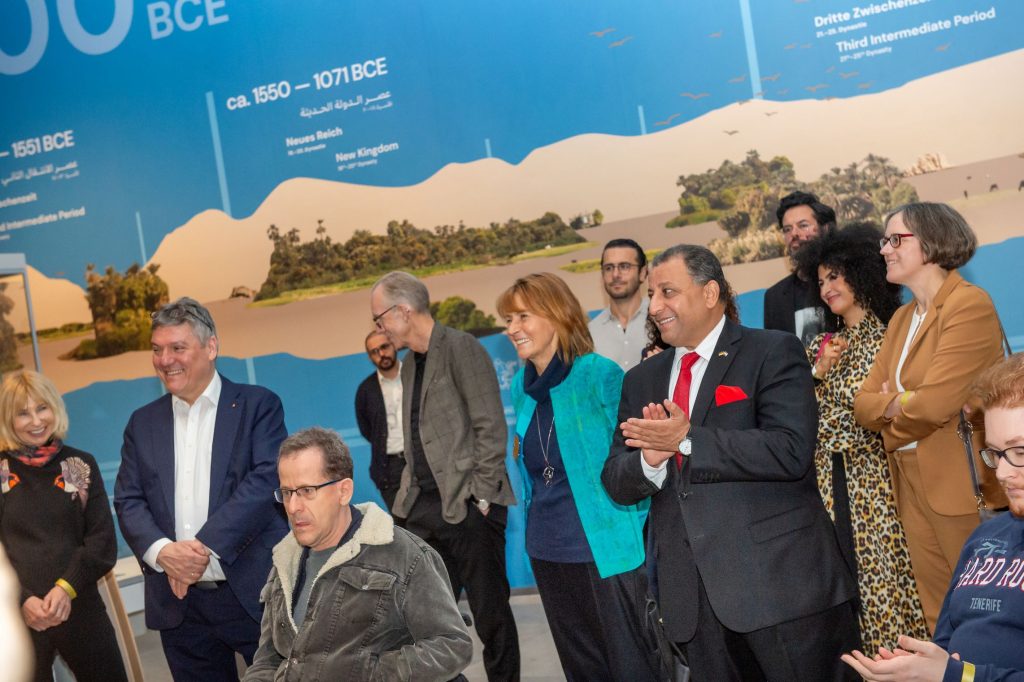
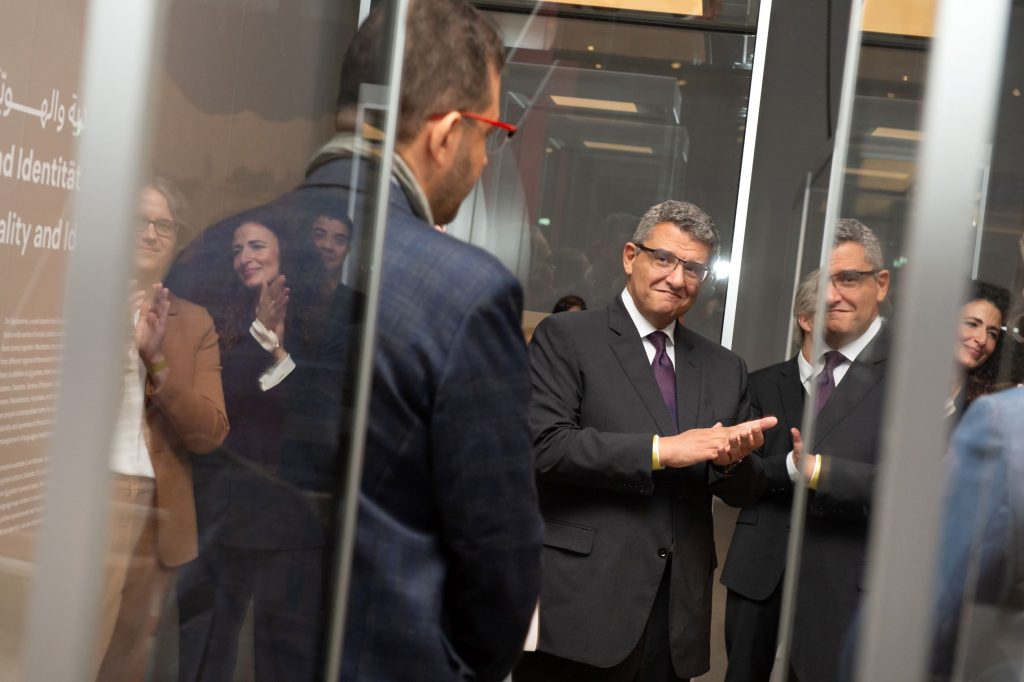
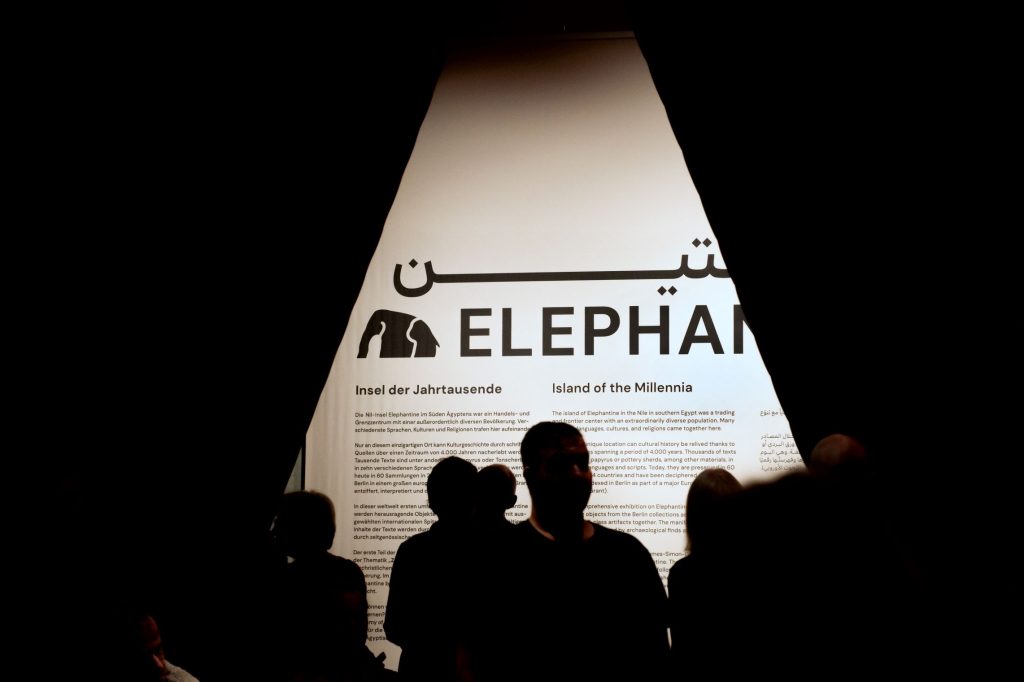
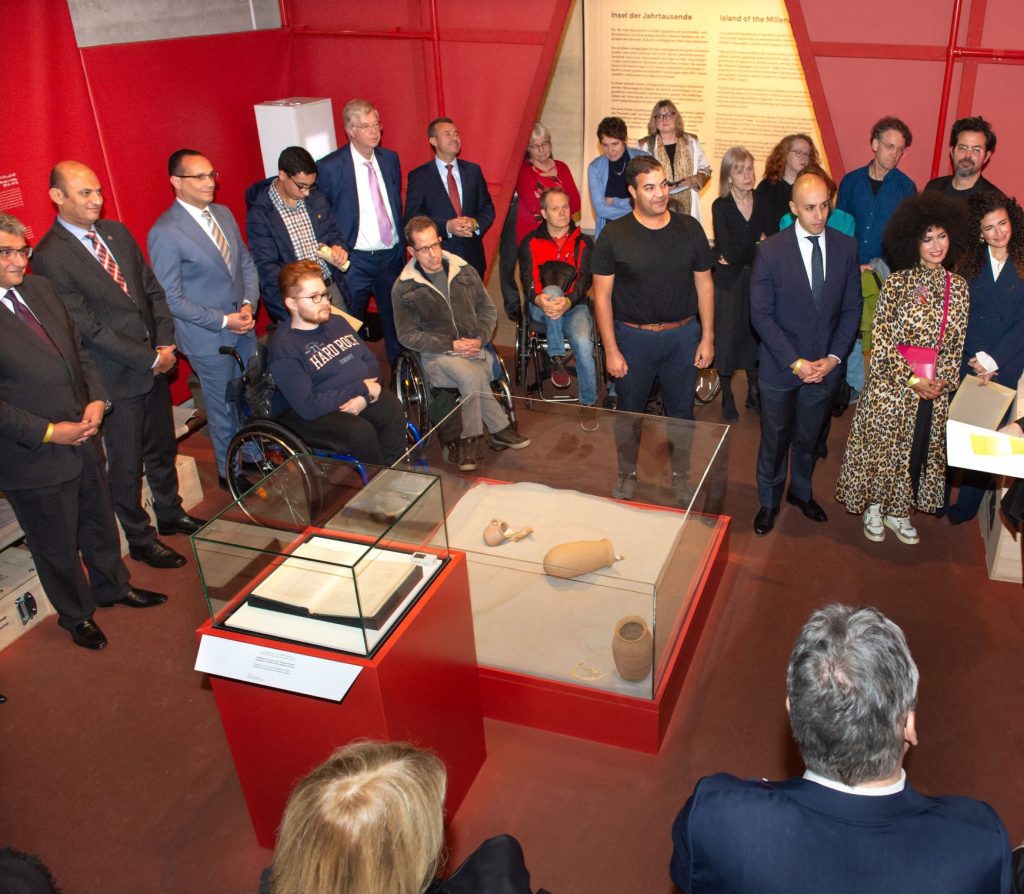
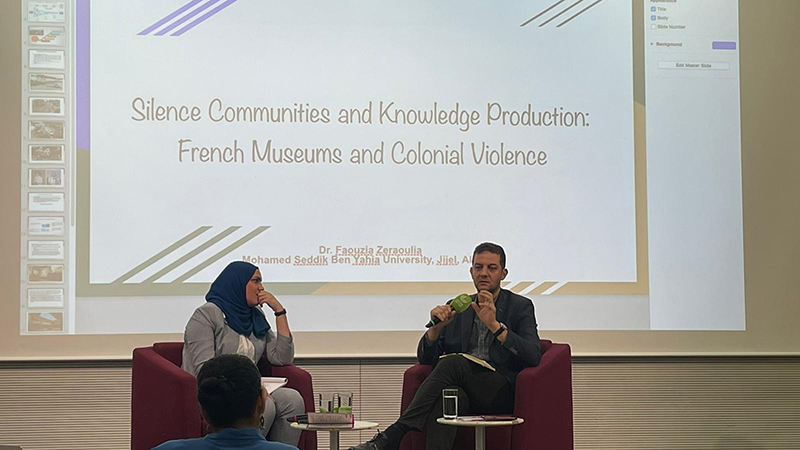
Date: 22 September 2024
Venue: Goethe Institute Cairo
Moderating Dr. Faouzia Zeraoulia’s lecture on knowledge transfer and colonialism in the Maghreb, with a focus on Algeria. We had a spirited discussion on how knowledge production was reshaped through Francophone and Anglophone colonialism in Algeria and Egypt. This was part of the conference, Knowledge Transfer: Interdisciplinary Approaches Between Arts, Science And Society organized by AGYA.
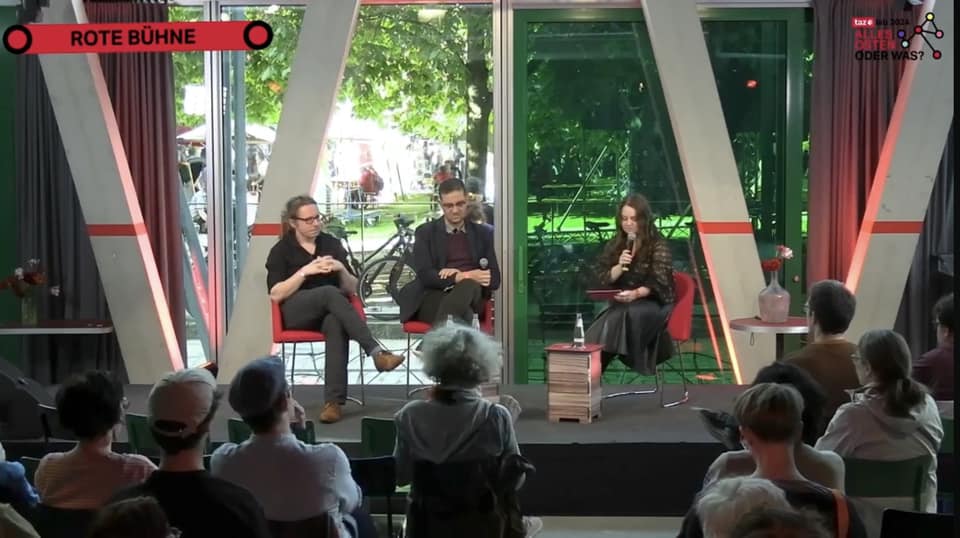
Was heißt denn nun “Nie wieder”? / So what does never again mean? (Panel discussion on Germany’s position towards Gaza)
Date: 27 April 2024
Organiser: Taz Lab
City: Berlin
Event details: https://taz.de/programm/2024/tazlab2024/de/events/1416.html

It was an honour to be invited to speak on a topic close to my heart and sharing the panel with stellar figures as Lebanese author Dima Issa and Palestinian novelist Susan Abulhawa, and moderated by legal scholar Noha Abouleldahab. It was an enriching discussion with a massive turnout in Doha, and it was refreshing to talk about Gaza without any attempted censorship. Thank you to the Middle East Council for the invitation and organising the “Voices from the Arab Diaspora: Public Intellectuals, Literature, and Exile” event.
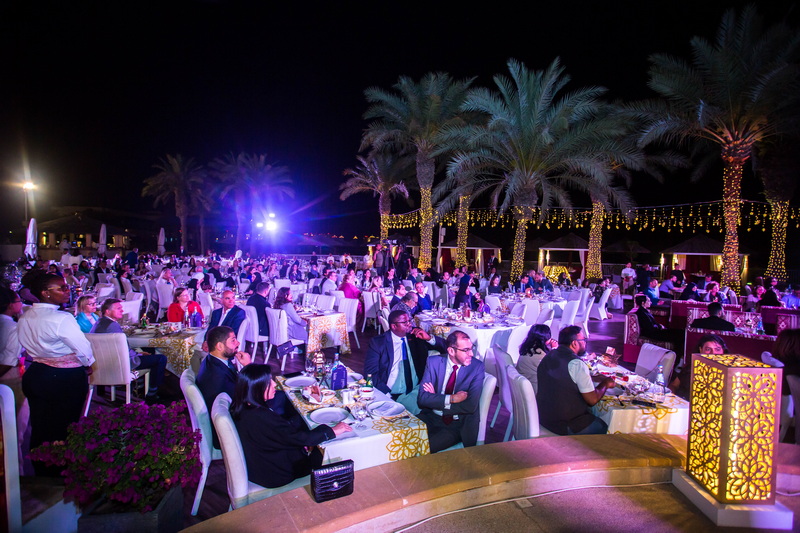

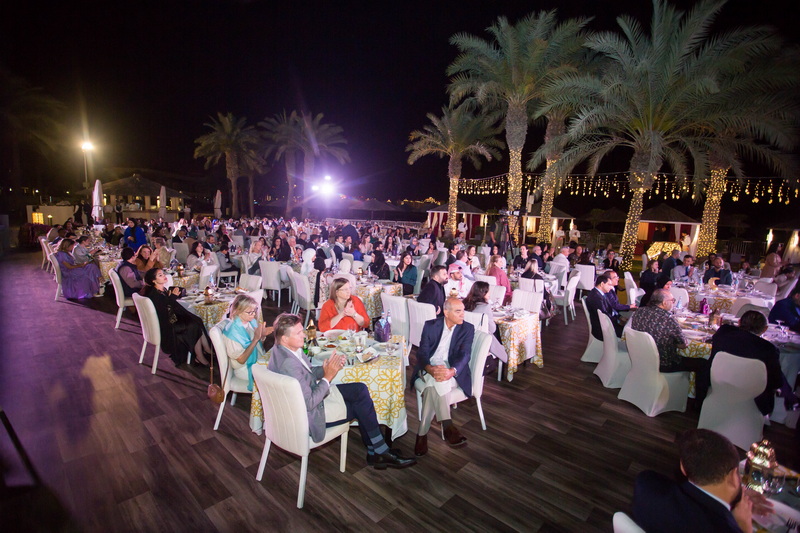
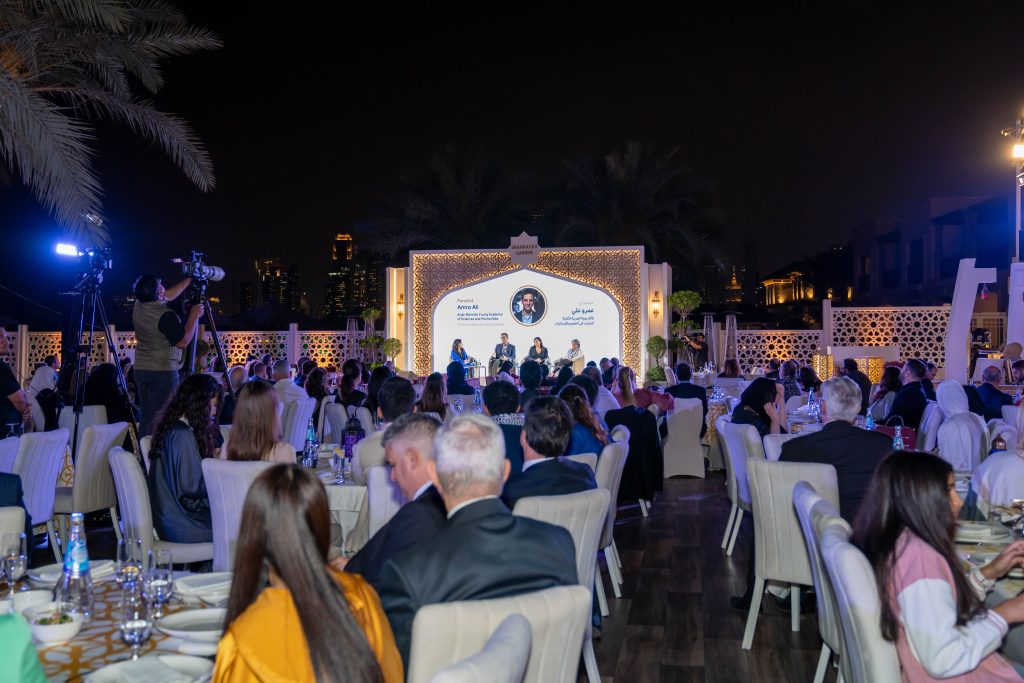
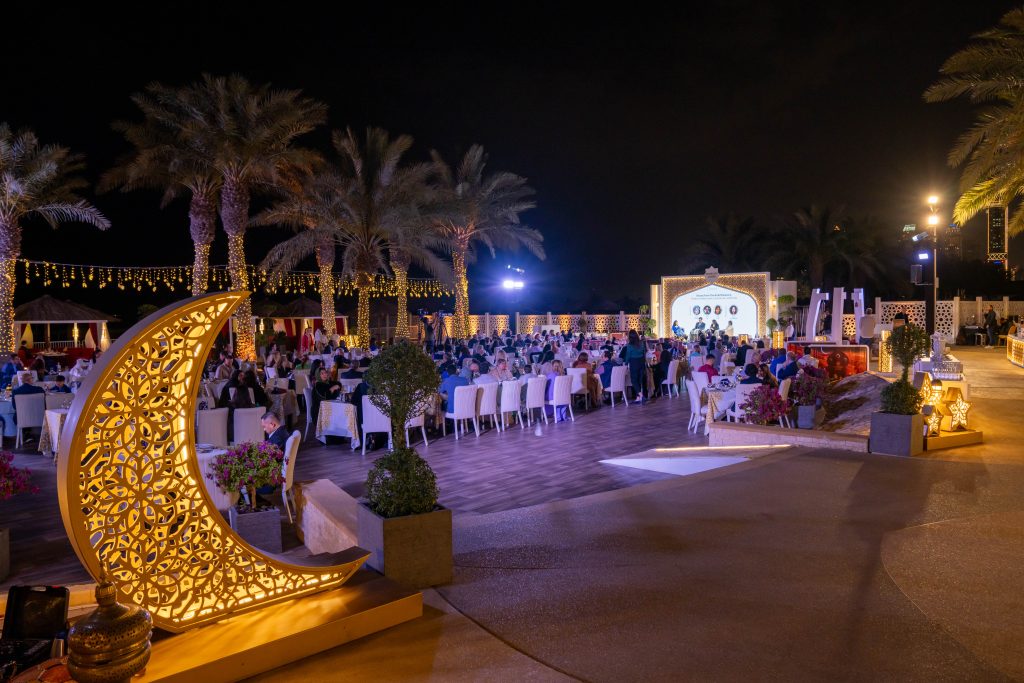
The video of the event can be viewed below.

Since my article in Der Spiegel on Gaza, which can be read in the following languages, German, English, Arabic, and Italian, I’ve received countless messages from upset Germans. I want to show this angry email from a professor (or more technically, a Privatdozent) which is quintessential as it ticks almost all the boxes with the problematic German position. This started off as a thread on Twitter which garnered lots of insightful responses.
From the outset, I want to clarify that I understand there is a plurality of German views, but this one by far reflects the dominant worldview of the establishment that is impacting domestic and foreign policy.
I chose this email because it comes from a German academic and historian who has published books on German literature. He plays a role of consequence in society. And no, I won’t disclose his identity not just because privacy and ethics matter to me, but because he sent it privately as an email, not through a public medium like Twitter. Also, his views are not uncommon in Germany, it’s a socio-structural problem. Rather than the individual, we need to address the bigger picture that normalizes genocide.
Let’s dissect this.

Although titles don’t bother me, he addresses me as “Mr” while he signs off as doctor. Despite him knowing I’m a doctor. The hierarchy is established from the start. He also doesn’t know if I speak German, but has assumed I don’t in order to build up his following argument.

Putting aside that “We Germans” has a ring of the Volksgemeinschaft. The irony of saying “ignorance of people who judge our country without any knowledge of our language” when Germans who don’t know Arabic, Hebrew, Persian etc will write endlessly on the Middle East.
I’m a scholar of Middle Eastern studies, and if Germany is going to send hundreds of millions of euros in military equipment to Israel, then it should not be surprising that I will treat this as a political and moral problem in my domain.

Here is a classic form of offloading German historical guilt onto the Palestinians who are stripped of political, structural, and colonial factors while marginal individual phenomenons like the Mufti of Jerusalem are centered.
The Zionist narrative is pathologically obsessed with the Mufti. Netanyahu partly blames him rather than Hitler for causing the Holocaust. Here is an article that briefly unpacks the exaggerated role of the Mufti who “when all things considered, was a rather powerless politician in exile who couldn’t even muster his own people to fight at the outset of the 1948 war.”
Never mind the Balfour Decleration and British colonialism, or that Palestinian politics comprised of liberalism, socialism, Islamism, fascism etc. The Zionist narrative likes to go for the marginal one that can justify its legitimacy, with German officialdom cheering this on.
No one is claiming “permanent Palestinian innocence”, not even Palestinians themselves. They have made mistakes like all liberation movements. Yet his subtext is that there is a permanent Zionist innocence as the categories of occupier/occupied, aggressor/victim, etc are switched.
Lots of Tu quoque (you too) fallacies, but on the point of Jews leaving or being expelled is certainly one of the darkest stains committed in the Arab world, not to mention a tragic loss for Arab countries. But history shows it was never as simple, for example, in Iraq, “Zionists bombed sites to encourage migration to Israel”

Yep, he went there. Comparing Hamas with the Nazis. A tiny bit of detail he forgets, that since October 7, most of the murdered civilians in Gaza were born after 2006 or were too young to vote in 2006.

He uses genocide only for October 7th and belittles the Bosnian genocide. He brings up the rejected claims of beheaded babies. No mention of 25,000+ murdered Palestinians. His real point being: only an anti-Semite would deny Israel’s right to carry out a genocide.

No mention if Palestinians have a right to defend themselves or if they have a right to a state. He prefers to frame the entire Palestinian people through the lens of Al-Husseini and Hamas “enemies of the Jewish people…since more than 100 years”. So much German projection here!
Here are some of the many tweet replies that stood out and added value to the discussion:
“This German completely skips over Hitler and Nazi Germany !!” – @Busybee32433175
“Just a German scholar weaponising its historical guilt against anyone critical of ISR. This is peak selective and historical revisionism. These are easily debunked. It’s concerning that it’s coming from an academic.” – @Amarmustafa_
“Who on earth uses a quantifier like ‘small’ to describe the genocide in Srebrenica? Their constant need to offload their historical guilt is patently pathological. Please read this excellent thread.” – @theafroaussie
“Is nobody going to bring up the fact that he made up voting stats to help his point? Hamas NEVER won a majority of voters in Gaza. In 2006, they won a plurality with less than 50% of votes. I’m surprised an academic could get that wrong but then again he has a narrative to push.” – @DiasporaArab
“Worth reading it; as the author rightly suggests this angry email points to a structural / ideological problem rather than to an individual opinion.” – @VolkanCidam
“To such persons we (brown/blacks) will forever be spoken down to, no matter how many qualifications and eduction we successfully complete and receive from THEIR establishments. As the issue is not ignorance but arrogance. In this narrative we are the uncivilised ‘other’ no matter what.” – @imsarakay
“Telling that Palestinians are still responsible for the views of the grand Mufti who continues to be their ‘leader’ but Germans are not still responsible for Hitler. They have offloaded this responsibility by projecting their own demons onto the Palestinians.” – @akkhan81
“Good to detail also that history did not begin on October 7, and address the structural conditions of Palestinian subjugation by Israel for 75 years,(disposition, ethnic, cleansing, military occupation, apartheid), notwithstanding the extreme suffocation of Gaza for 17 years. This does not mean that anything goes against occupying non-combatants in response, but the complete elision of context by the German doctor is criminal and telling. If not outright racist.” – @4Bassam
It was a great pleasure and honor to give a guest public lecture to the inspiring students at the University of Tunis, and thank you to Prof. Anis Ben Amor for the invitation. The topics touched on Gaza, alienation, and recalibrating the moral compass and preserving the ethical self in the era of genocide normalization.
